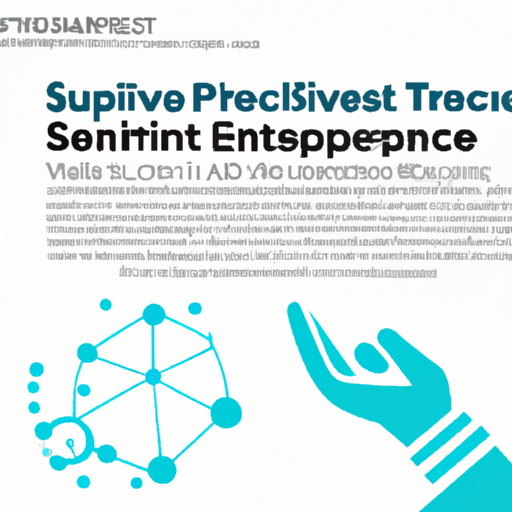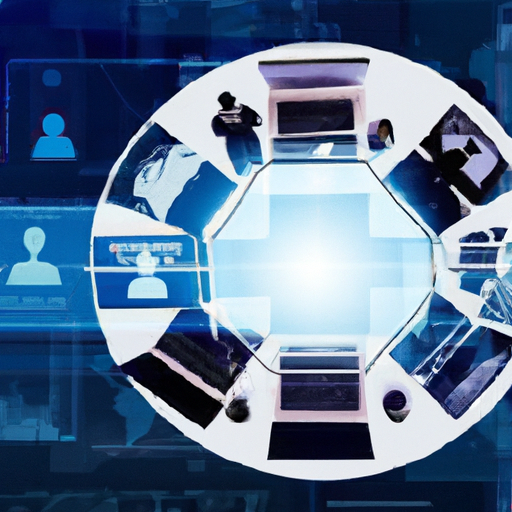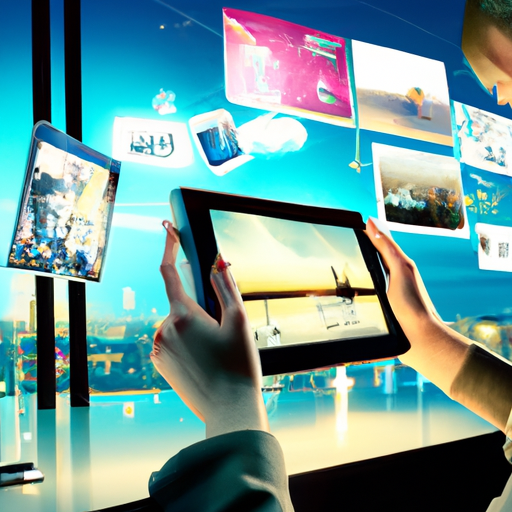Erp Technology Trends
In the rapidly evolving world of business technology, ERP (Enterprise Resource Planning) is at the forefront of enabling companies to streamline operations and improve efficiency. This article explores the latest trends in ERP technology that are shaping the way organizations manage their resources and navigate the complexities of modern business. From cloud-based solutions to artificial intelligence and machine learning, these advancements are revolutionizing the way companies integrate and optimize their processes, ultimately driving growth and success in today’s competitive landscape. So, if you want to stay ahead of the curve and harness the power of ERP for your organization, keep reading to discover the cutting-edge trends that are transforming the business world.
Table of Contents
ERP Technology Trends
Welcome to the world of ERP (Enterprise Resource Planning) technology trends! In this article, we will explore the latest advancements and innovations in the field of ERP. From cloud-based solutions to artificial intelligence and machine learning, from blockchain to the Internet of Things (IoT), we will delve into the various trends that are shaping the future of ERP. Get ready to be amazed by the possibilities!

Cloud-based ERP Solutions
Gone are the days of cumbersome on-premise ERP systems. Cloud-based ERP solutions have taken the business world by storm, offering greater flexibility, scalability, and accessibility. With a cloud-based ERP system, you can say goodbye to costly hardware and maintenance expenses. Everything is stored securely in the cloud, accessible from anywhere, anytime. The cloud-based approach also enables real-time data synchronization, ensuring that all stakeholders have access to the most up-to-date information. This trend is rapidly gaining traction as more and more businesses recognize the benefits of moving their ERP systems to the cloud.
Artificial Intelligence and Machine Learning
Artificial intelligence (AI) and machine learning (ML) have revolutionized many industries, and ERP is no exception. AI and ML algorithms can analyze vast amounts of data and make intelligent predictions, helping businesses make informed decisions and optimize their operations. For example, AI-powered ERP systems can automatically forecast demand, detect anomalies, and identify patterns in the data to streamline inventory management and reduce costs. Machine learning algorithms can also continuously learn from historical data, improving their predictions and recommendations over time. The integration of AI and ML into ERP systems holds great potential for enhancing efficiency and driving business growth.
Internet of Things (IoT) Integration
The Internet of Things (IoT) is a network of interconnected devices that can exchange data and communicate with each other. In the context of ERP, IoT integration allows for seamless connectivity and data exchange between devices and ERP systems. For example, IoT sensors embedded in manufacturing equipment can track real-time performance metrics and send alerts to the ERP system when maintenance is needed. This enables proactive maintenance planning, reducing downtime and improving overall equipment effectiveness. IoT integration also enables real-time tracking of assets, enhancing supply chain visibility and improving inventory management. With IoT, ERP systems become even more powerful, providing businesses with actionable insights and greater control over their operations.

Mobile ERP Applications
In today’s fast-paced business environment, employees need to access ERP systems on the go. This is where mobile ERP applications come in. With a mobile ERP app, you can access critical business information and perform ERP transactions right from your smartphone or tablet. Whether you are in a meeting, on a business trip, or working remotely, you can stay connected to your ERP system and make informed decisions. Mobile ERP applications also offer features like real-time notifications, task management, and document sharing, empowering employees to work more efficiently and collaboratively. The rise of mobile ERP applications is transforming the way businesses operate, enabling greater agility and productivity.
Blockchain in ERP
Blockchain technology, originally developed for cryptocurrencies like Bitcoin, has found its way into the world of ERP. Blockchain offers a secure and transparent way to store and share data, making it ideal for ERP systems that require trust, integrity, and traceability. By leveraging blockchain, ERP systems can ensure the authenticity and immutability of data, preventing fraud and unauthorized changes. For example, in a supply chain ERP system, blockchain can be used to create a tamper-proof record of every transaction, from raw material sourcing to product delivery. This enhances transparency and trust among stakeholders, simplifies auditing processes, and significantly reduces the risk of counterfeit products. The integration of blockchain into ERP is a game-changer, revolutionizing how businesses manage their operations and collaborate with partners.
Robotic Process Automation (RPA) in ERP
Robotic Process Automation (RPA) involves the use of software robots or “bots” to automate repetitive and rule-based tasks. When integrated with ERP systems, RPA can streamline processes, reduce errors, and free up human resources for more strategic activities. For example, RPA can automate data entry, report generation, and invoice processing, eliminating manual errors and speeding up workflows. RPA bots can also interact with other systems and applications, enabling seamless data transfer and integration. With RPA in ERP, businesses can achieve greater operational efficiency, faster cycle times, and improved customer satisfaction.
Data Analytics and Business Intelligence
Data is the new gold, and ERP systems hold a wealth of valuable data. To unlock its full potential, businesses are turning to data analytics and business intelligence (BI) tools. These tools allow businesses to extract insights from their ERP data, identify trends, and make data-driven decisions. For example, data analytics can help identify bottlenecks in the production process and optimize resource allocation. BI dashboards can provide real-time visibility into key performance indicators (KPIs), enabling managers to monitor and track progress towards business goals. By harnessing the power of data analytics and BI, businesses can drive continuous improvement, increase agility, and stay ahead of the competition.
Personalization and Customization
One size does not fit all when it comes to ERP systems. Businesses have unique requirements and processes that need to be accommodated. Personalization and customization capabilities are becoming increasingly important in ERP solutions. Modern ERP systems allow businesses to tailor the user interface, workflows, and reports to their specific needs. This not only improves user adoption and productivity but also enables businesses to adapt to changing market conditions and regulatory requirements. With personalized and customized ERP systems, businesses can have the flexibility and agility they need to thrive in a dynamic business environment.
Collaborative ERP
Collaboration is the key to success in today’s interconnected world. ERP systems are evolving to facilitate greater collaboration among employees, departments, and even external stakeholders. Collaborative ERP features include real-time document sharing, task assignment and tracking, instant messaging, and integration with collaboration platforms like Microsoft Teams and Slack. By fostering collaboration, businesses can break down silos, enhance communication, and accelerate decision-making. Collaborative ERP enables seamless collaboration across geographies and time zones, driving innovation and competitiveness.
Digital Transformation in ERP
Digital transformation is reshaping businesses across industries, and ERP systems are at the heart of this transformation. The digitalization of processes, the integration of various technologies, and the automation of tasks are all part of the digital transformation journey. Businesses are embracing ERP systems as the foundation for their digital transformation initiatives. Whether it’s automating manual processes, leveraging data analytics, or integrating emerging technologies like AI, IoT, and blockchain, ERP systems are becoming the backbone of digital enterprises. By embracing digital transformation in ERP, businesses can unlock new opportunities, improve agility, and create a competitive advantage in the digital age.
In conclusion, ERP technology trends are driving digital transformation and revolutionizing the way businesses operate. From cloud-based solutions to AI and ML, from IoT integration to mobile applications, ERP systems are becoming more powerful, flexible, and collaborative. The integration of emerging technologies like blockchain and RPA is enhancing the security, trust, and efficiency of ERP systems. Data analytics and BI tools are unlocking the value of ERP data, enabling data-driven decision-making. Personalization and customization capabilities are empowering businesses to adapt and thrive in a dynamic business environment. As businesses embark on their digital transformation journeys, ERP systems are guiding the way, providing the foundation for success in the digital age. So, embrace these ERP technology trends and take your business to new heights of efficiency, productivity, and innovation!






